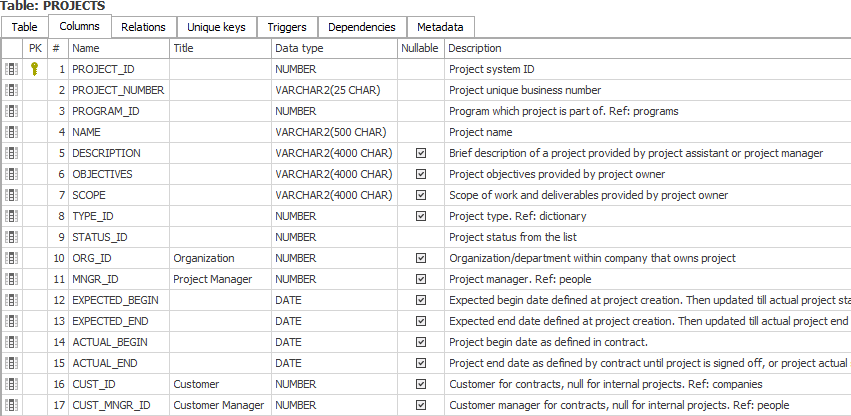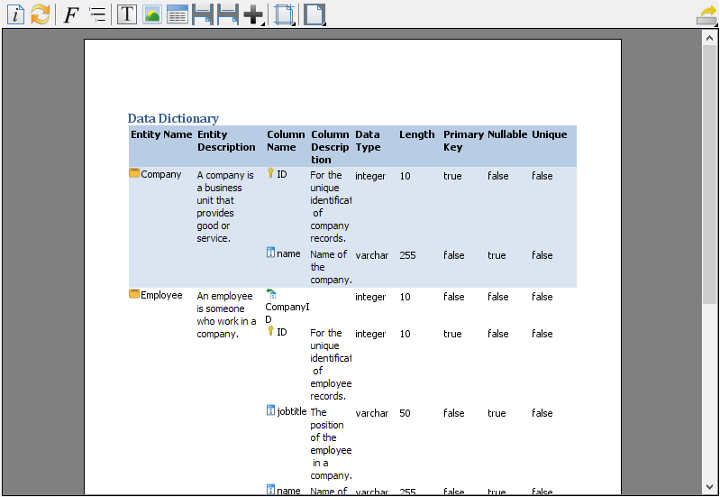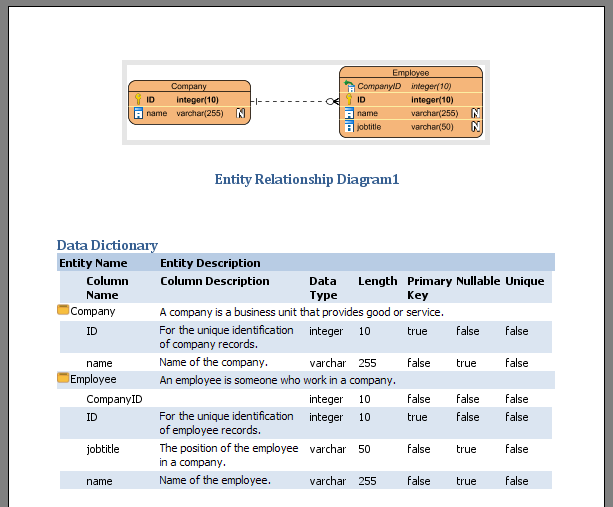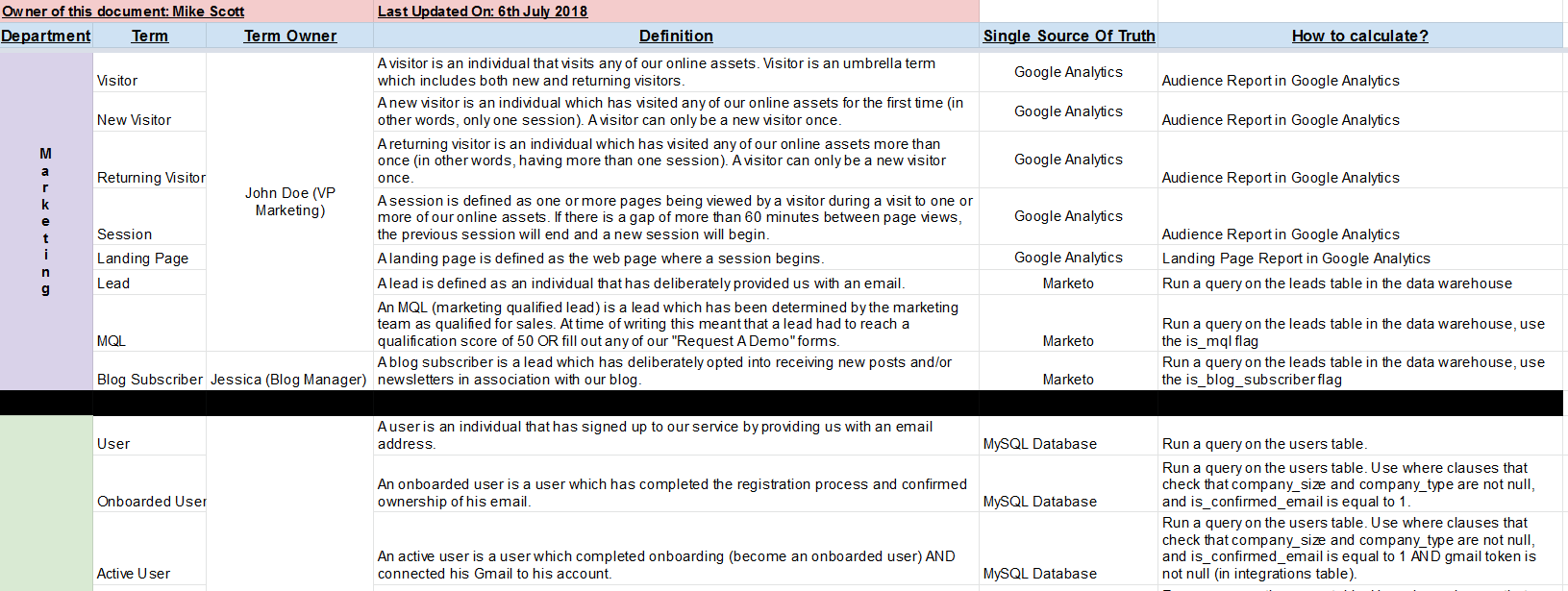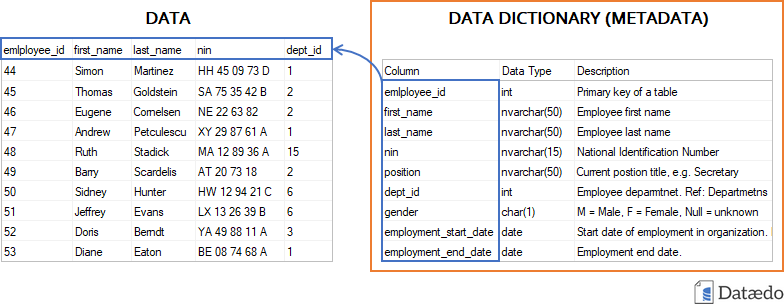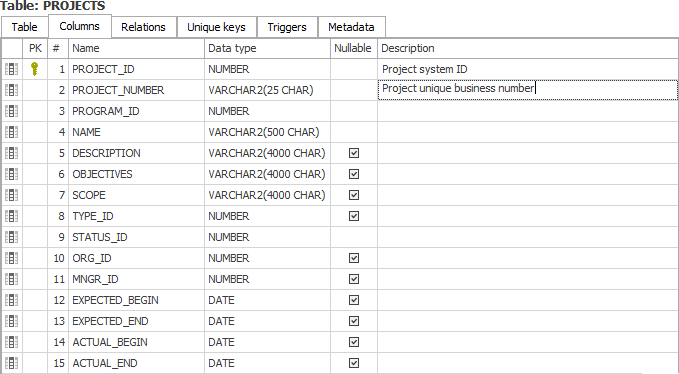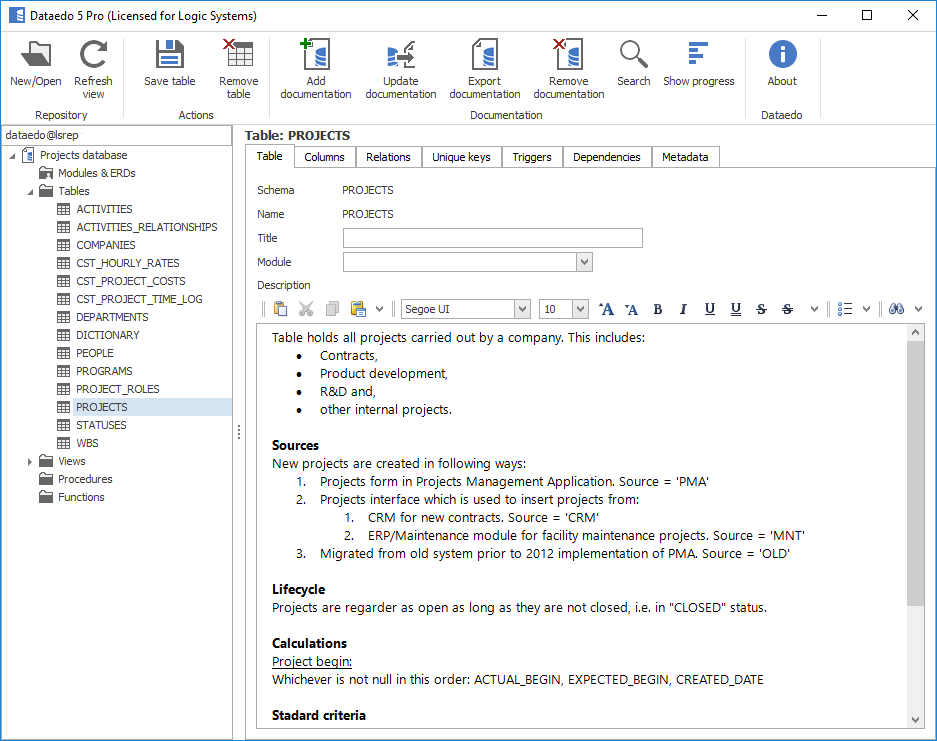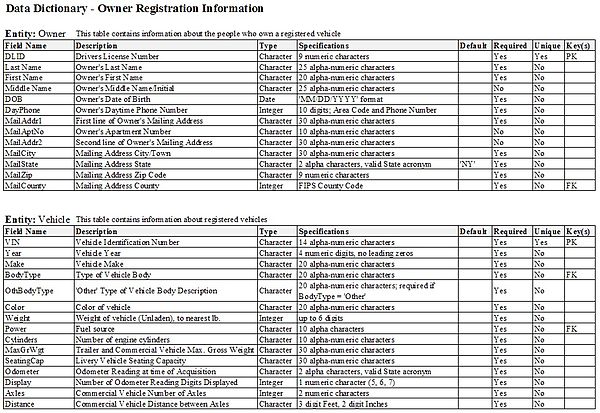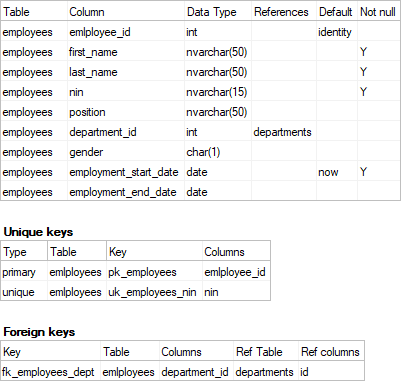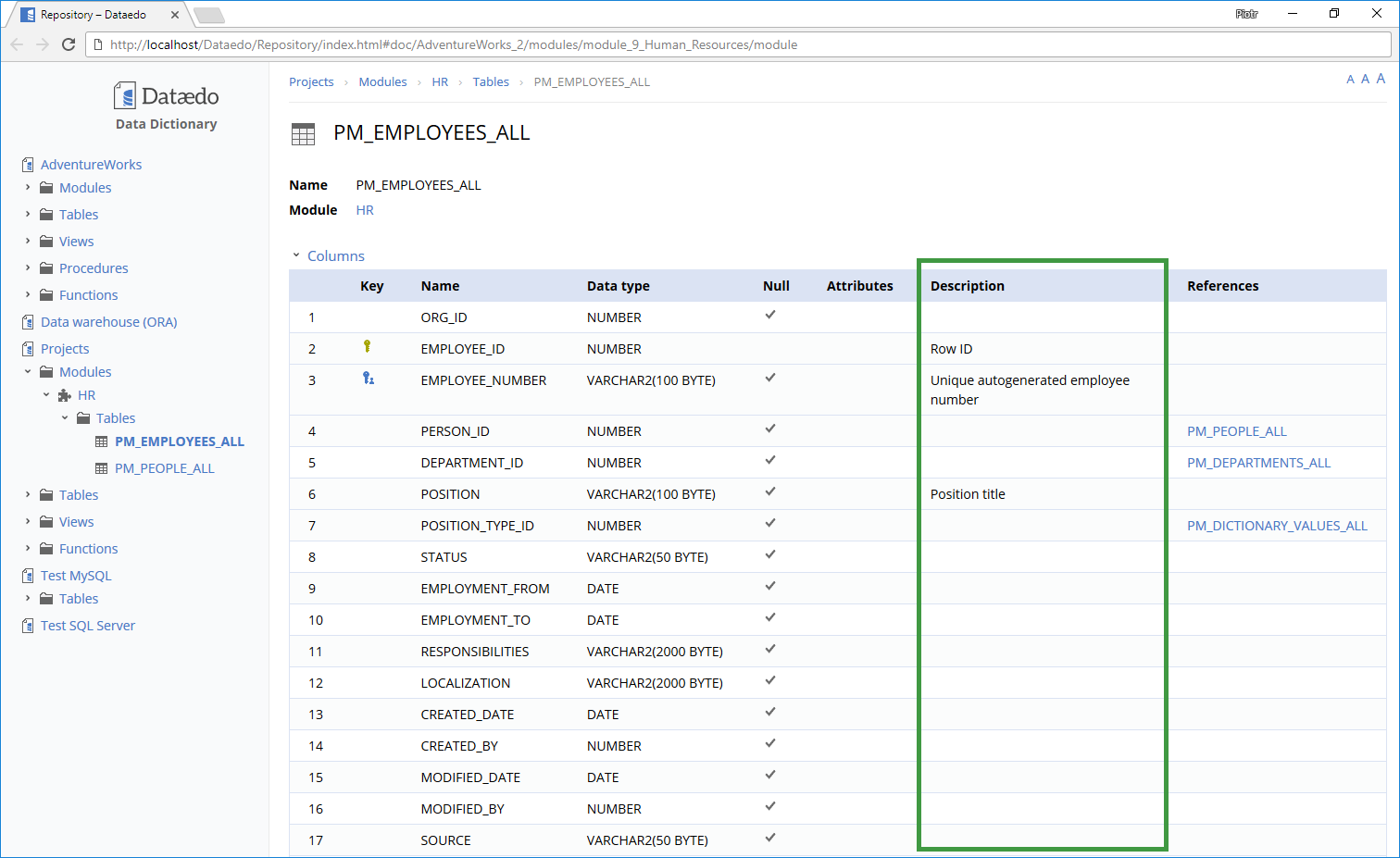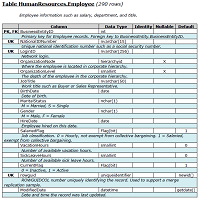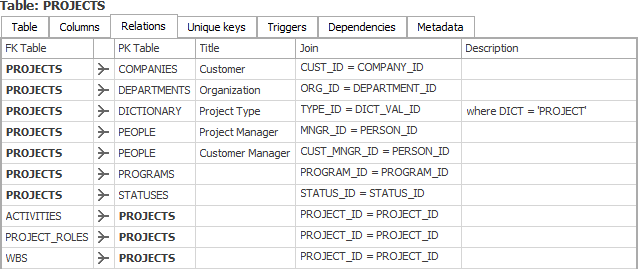Best Data Dictionary Template

A data dictionary is a list of key terms and metrics with definitions a business glossary.
Best data dictionary template. In fact a data dictionary is possibly one of the most valuable artifacts that a data team can deliver to the business. Finally this document is referred to in the testing process. Data dictionary is the textual description of data objects and their inter relationships. A data dictionary describes the physical attributes of a data element.
What is data dictionary. It stores all the information in extended properties so its easier to keep the documentation in sync with the database as it changes. The first for introductory background information and three more to correspond to the three tabs of data. Use one row for each data element and do not leave rows columns or cells blank.
For example if your dataset consists of three tabs your data dictionary will have four tabs. No support for data dictionary a description of each data element. If you would like to download a starter data dictionary template it can be found here. Data dictionary blank template this blank template can be used to manually create a data dictionary.
What is a master data dictionary. A master data dictionary is the authoritative document containing the agreed upon definitions of all the key metrics for an organization. Submit a spreadsheet xls or xlsx with one tab for introductory information and separate data dictionary tabs that correspond to each existing tab in your dataset. As required and optional data elements are identified add them to the data dictionary.
When data structures change update the dictionary. This article presents 8 different types of tools you can use to create a documentation of your existing databases. Data dictionary creator ddc is a simple application which helps you document sql server databases. In an ideal world any metrics being used by more than one person at an organization would be documented in the data dictionary.
8 different types of tools you can use to document your database. Keep your data dictionary up to date plan ahead for storing data at the start of any project by developing a schema or data model as a guide to data requirements. While it is sounds simple almost trivial its ability to align the business and remove confusion can be profound.
